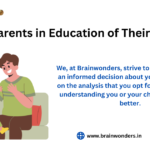In today’s rapidly evolving world, critical thinking has emerged as a crucial skill set for students to navigate the complexities of life. As we strive to prepare the younger generation for a future filled with uncertainty and diverse challenges, it is imperative that we equip them with the ability to analyze, evaluate, and solve problems effectively. This article delves into the significance of cultivating critical thinking skills in education and provides valuable insights for educators and parents on fostering these skills in students, empowering them for success in various domains.
Critical thinking encompasses the capacity to think independently, objectively, and strategically. It involves the skills of reasoning, discernment, and logical analysis. Students with strong critical thinking abilities are adept at questioning assumptions, examining evidence, and considering multiple perspectives before drawing conclusions. They possess the capacity to evaluate information critically, which is especially crucial in an era of rapid information dissemination and misinformation.
One of the fundamental ways to nurture critical thinking is through encouraging curiosity and inquiry-based learning. Educators can promote an environment that stimulates students’ natural inquisitiveness, allowing them to explore and investigate topics of interest. By posing thought-provoking questions, educators can ignite students’ intellectual curiosity and prompt them to delve deeper into subjects. This approach not only enhances students’ critical thinking skills but also instills a lifelong love for learning.
Another key aspect of developing critical thinking is teaching students how to analyze and evaluate information. In the age of abundant information, students must learn to distinguish between reliable sources and misleading or biased ones. Educators can guide students in assessing the credibility, relevance, and accuracy of information by teaching them research skills, source evaluation techniques, and media literacy. By honing these skills, students become empowered to make informed decisions and form well-rounded perspectives.
Problem-solving is another critical component of developing critical thinking skills. Real-world challenges demand innovative solutions, and students need to be equipped with the ability to identify problems, think creatively, and devise effective strategies to overcome them. Educators can incorporate problem-solving activities into the curriculum, encouraging students to collaborate, brainstorm ideas, and critically evaluate potential solutions. By engaging in such activities, students develop resilience, adaptability, and the ability to approach challenges with a solution-oriented mindset.
Collaborative learning environments also play a vital role in nurturing critical thinking. By engaging in discussions, debates, and group projects, students learn to consider diverse viewpoints and challenge their own assumptions. Such interactions promote the development of communication skills, empathy, and the ability to work effectively in teams. Through collaboration, students expand their critical thinking capacity by drawing on the collective knowledge and experiences of their peers.
Parents also have a significant role to play in fostering critical thinking skills in their children. Encouraging open dialogue, active listening, and respectful debate at home cultivates a culture of critical thinking. Additionally, parents can provide opportunities for independent thought and decision-making, allowing their children to develop autonomy and problem-solving skills. Engaging in activities such as puzzles, games, and debates with their children can also stimulate critical thinking while nurturing the parent-child bond.
The cultivation of critical thinking skills is paramount in preparing students for success in an ever-changing world. By fostering curiosity, teaching information analysis, promoting problem-solving, and encouraging collaboration, educators and parents can empower students to become independent thinkers, adaptable problem solvers, and responsible citizens. By equipping the younger generation with these invaluable skills, we ensure that they are well-prepared to thrive in diverse domains and tackle the challenges of the future with confidence.




